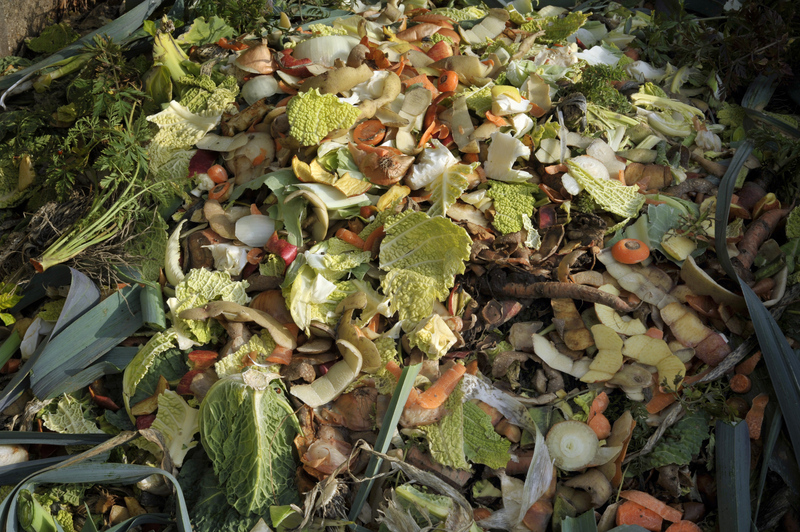Integrating Sustainable Practices to Reduce Plastic: A Comprehensive Guide
Plastic pollution is a pressing environmental issue that demands immediate attention and action. From plastic waste in our oceans to overflowing landfills, the impacts of excessive plastic use are far-reaching and detrimental to our planet. By integrating sustainable practices to reduce plastic, individuals, businesses, and communities can collectively pave the way for a healthier and more sustainable future. This article offers an in-depth exploration of the necessity, methods, and strategies for reducing plastic usage, while also emphasizing the long-term benefits of embracing sustainability.

Why Is Reducing Plastic Usage Essential?
Before delving into the actionable strategies, it's crucial to understand why integrating sustainable practices to cut down plastic consumption is so important:
- Environmental Impact: Plastic takes hundreds of years to decompose, polluting land and water sources.
- Wildlife Threats: Animals often ingest or become entangled in plastic waste, leading to injury or death.
- Human Health: Microplastics contaminate food and water supplies, posing potential health risks.
- Resource Depletion: Producing plastic consumes significant amounts of fossil fuels.
Key Terms: Plastic Waste Reduction, Sustainable Integration, and Eco-Friendly Habits
Before moving forward, let's define some essential terms to set the stage:
- Plastic Waste Reduction: The active process of minimizing plastic materials in daily life or business operations.
- Sustainable Integration: The incorporation of environmentally responsible practices into everyday routines and systems.
- Eco-Friendly Habits: Choices and behaviors that reduce harm to the environment.
How to Integrate Sustainable Practices to Reduce Plastic: Practical Steps
Adopt Reusable Alternatives
One of the most effective methods to reduce plastic consumption is by replacing single-use plastics with reusable items. Here are some everyday swaps you can make:
- Reusable Water Bottles: Switch out disposable water bottles for durable, refillable options made from stainless steel or glass.
- Cloth Shopping Bags: Carry your own bags for groceries and shopping to avoid plastic bags.
- Beeswax Wraps: Replace plastic wrap with beeswax wraps for storing food.
- Stainless Steel Straws: Invest in reusable straws instead of plastic ones.
- Coffee Cups: Bring a reusable mug for your coffee runs.
Rethink Product Packaging
Businesses and consumers alike should prioritize products with minimal or biodegradable packaging. When shopping, look for brands that use recyclable materials or allow you to buy in bulk to minimize plastic packaging waste.
- Support companies with sustainable packaging initiatives.
- Choose products in glass, cardboard, or compostable wrappers.
- Consider buying in bulk with your own containers.
Encourage Community Involvement and Education
Building a sustainable community is key to tackling plastic pollution. Educate friends, family, and neighbors about the dangers of plastic use and sustainable alternatives. Host or participate in plastic clean-up events and encourage group efforts to make a greater impact.
Implement Sustainable Practices in the Workplace
Offices and businesses contribute significantly to plastic waste production. Here's how to integrate sustainability measures at work:
- Substitute disposable cutlery, cups, and plates with reusable options in break rooms.
- Opt for digital documentation to reduce plastic-covered office supplies.
- Install filtered water systems to eliminate bottled water use.
- Encourage remote work to minimize packaging from takeout.
Support and Advocate for Policy Changes
Advocacy for policy changes is among the most impactful ways to integrate sustainable practices and lower plastic dependency. Support or initiate local bans on single-use plastics, promote recycling programs, and urge government bodies to impose stricter regulations on plastic manufacturers.
- Engage with local lawmakers to create plastic reduction policies.
- Lend your voice to petitions that promote plastic-free initiatives.
- Promote extended producer responsibility (EPR) laws that shift accountability to manufacturers for post-consumer waste.
Compost and Recycle
Composting and proper recycling are fundamental to sustainable waste management. Although not all plastics are recyclable, making sure recyclable plastics are disposed of correctly can drastically reduce pollution:
- Separate recyclable plastics from general waste.
- Learn which plastics are accepted by your local recycling program.
- Compost biodegradable packaging and food scraps whenever possible.
The Role of Innovation and Technology
Modern innovations are paving the way for a plastic-free future. Technological advancements are enabling the creation of sustainable alternatives and improving plastic waste collection and recycling. Some notable innovations include:
- Biodegradable Plastics: Comprised of natural materials like cornstarch, these plastics break down more rapidly than conventional types.
- Plastic-to-Fuel Technologies: Transform plastic waste into usable fuel for energy.
- Advanced Recycling Techniques: Innovative recycling plants utilize chemical and enzymatic processes to repurpose hard-to-recycle plastics.
- Ocean Cleanup Projects: Specialized drones and nets target plastic debris in the world's waterways.
Case Study: Cities Successfully Minimizing Plastic Use
Globally, several cities have implemented successful strategies for integrating eco-friendly practices to mitigate plastic waste:
- San Francisco: Introduced a ban on single-use plastic bags, reducing bag litter by 70% within three years.
- Amsterdam: Promotes a city-wide plastic-free initiative and encourages businesses to minimize packaging.
- Mumbai: Enacted a sweeping ban on single-use plastics, which has led to cleaner streets and a reduction in urban waste.
The Benefits of Integrating Sustainable Plastic Reduction Practices
Adopting sustainable practices to minimize plastic usage yields a range of benefits beyond environmental preservation. Here are some notable advantages:
- Improved Health Outcomes: Reducing microplastic exposure improves food and water quality.
- Cost Savings: Reusable items and bulk purchases lower expenses over time.
- Enhanced Reputation: Businesses that prioritize sustainability gain customer trust and loyalty.
- Legal Compliance: Preparing for stricter environmental regulations prevents future penalties.
- Resilient Ecosystems: Decreased plastic waste supports biodiversity and healthier natural habitats.
Barriers to Sustainable Plastic Integration and How to Overcome Them
Despite widespread awareness, several challenges hinder the implementation of sustainable plastic reduction strategies:
- Consumer Convenience: Single-use plastics are often more accessible and affordable.
- Lack of Awareness: Some individuals are unaware of alternative options or the impact of plastic pollution.
- Limited Infrastructure: Inadequate recycling and composting facilities can stall efforts.
- Business Reluctance: Transitioning to sustainable materials may seem costly.
Solutions and Tips
To overcome challenges and integrate sustainable plastic reduction solutions, consider these practical approaches:
- Education and Advocacy: Host workshops and use online platforms to share tips and stories.
- Government Incentives: Support and push for subsidies for businesses making eco-friendly transitions.
- Community Collaboration: Join or form environmental groups for collective action.
- Smart Shopping: Make conscious purchasing decisions, supporting brands advancing sustainability.

FAQs on Sustainable Plastic Reduction Practices
What are the most commonly used plastics that can be reduced?
Single-use items like plastic bags, bottles, straws, and packaging are primary culprits. Substituting these with reusables is an effective start.
Are biodegradable plastics a sustainable solution?
While biodegradable options are better than traditional plastics, they must be composted correctly to be truly effective. Whenever possible, favor reusable materials.
How can I influence others to reduce their plastic consumption?
Lead by example, share resources, and motivate your network to join clean-up activities and adopt eco-friendly habits.
Conclusion: Build a Plastic-Free Future with Sustainable Practices
The path to integrating sustainable practices for plastic reduction is clear--and it's now more urgent than ever. By prioritizing eco-friendly alternatives, supporting innovation, and participating in community initiatives, individuals and organizations can substantially reduce plastic waste. Remember, every small step counts, and when multiplied across society, these actions make a profound difference.
Make your contribution today. Begin by assessing your daily routines, encouraging change where you live and work, and spreading the message that together, we can integrate sustainable practices to reduce plastic and safeguard our planet for generations to come.